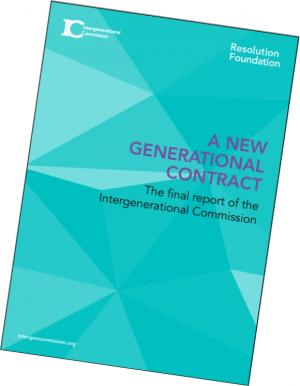
Find more posts
Resolution Foundation proposes surcharge on empties and second homes
Latest
May 10, 2018



The 23rd report from the Intergenerational Commission, entitled A New Generational Contract, includes surcharges on second and empty homes as part of its 10 main policy recommendations.
Recommendation number 6 reads:
Replace council tax with a progressive property tax with surcharges on second and empty properties; halve stamp duty rates to encourage moving; and offer a time-limited capital gains tax cut to incentivise o of additional properties to sell to rst-time buyers.
The surcharge model is spelt out in more detail in a separate publication, Home Improvements, that discusses the issues around council tax and stamp duty and foreign ownership in more detail. Essentially, it suggests the replacement of council tax with a property tax levied on the value of the owner's poperty portfolio over a certain amount such as £100,000, and with higher rates of taxes higher up the value scale. Against this would be an allowance per household in occupied properties. It follows that unoccupied properties would not receive the allowance.
This is a model that would probably require a fair bit of further tweaking if it were to work successfully as a disincentive in the case of low-value empties, compared with, say, double or treble council tax on such homes. But it is important that the report does accord empties and second homes (along with under-occupied homes) a high profile and the model does address the highly regressive aspect of council tax, i.e. its completely disproportionate impact on the income of poorer people in less valuable homes compared with that of richer people in more valuable homes..
The Intergenerational Commission was created by the Resolution Foundation, seemingly in late 2015, but features its own website. Whilst the Foundation describes itself is 'an independent think tank that works to improve the living standards of those in Britain on low-to-middle incomes', the Commission seems to be a task-and-finish body, with the current report being flagged as 'final'.
Most of the measures in the two reports mentioned above can be thought of as somewhate left-leaning, although the Commission was chaired by Conservative ex-Minister David Willetts, who is also the Executive Chair of the Resolution Foundation itself.
